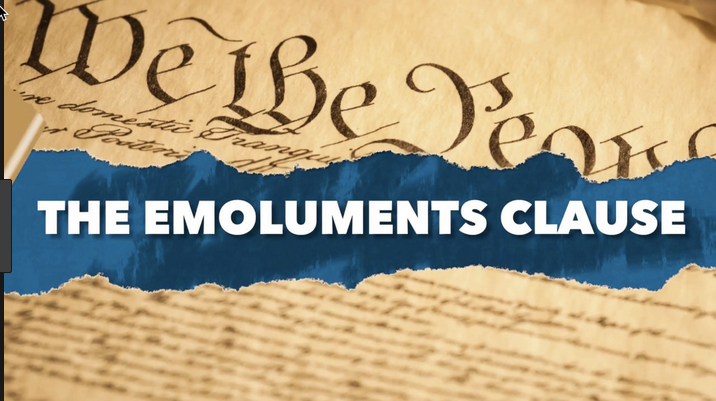President Trump is dealing with special counsel Robert S. Mueller III’s investigation, a new Democratic House majority and a series of controversies. Lurking behind it all is a slow-moving legal case trying to establish whether Trump is violating the Constitution by accepting foreign money at his hotel.
A new study suggests he might be.
The study concerns the “emoluments clause” case, which was brought by the attorneys general in Maryland and the District of Columbia. The case seeks to show Trump is violating the portion of the Constitution barring a public official from accepting “any present, Emolument, Office, or Title, of any kind whatever, from any King, Prince, or foreign State.” The case has progressed further than some experts predicted, with a U.S. district judge last year allowing it to proceed and launching the discovery process, in which Trump’s business dealings can be revealed.
Perhaps the biggest unresolved question hanging over the whole thing is this: What exactly is an “emolument”?
For Trump to have violated the Constitution, it requires his businesses’ acceptance of foreign money to be understood as “emoluments.” But that is not a word that is widely in use today, nor has the clause been tested frequently in courts.
Trump’s legal team has pointed to some 18th-century dictionaries to argue for a narrow definition of an emolument as a profit specifically “arising from an office or employ” — i.e. something leveraged by a position of power. The payments to Trump by foreign entities staying at his hotel do not qualify, his attorneys argue, because they are separate from his work as president. The attorneys general argued for a broader definition that includes any benefit, advantage or profit, regardless of official actions.
The U.S. district judge sided with the attorneys general after a Georgetown University law professor studied many more dictionaries written at the time and found they favored the broader definition.
That decision is under appeal, but now a new study submitted as an amicus brief in the case bolsters it, using a much-broader survey of how the word was used in the late-1700s than even the dictionary study.
Congressional Republicans Question Report Critical Of Trump Hotel Lease




